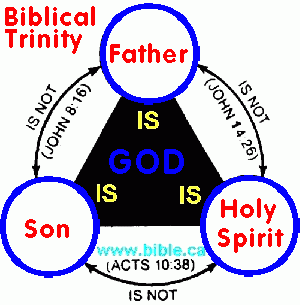yes, it is in the bible.
Hebrews
When God brings the firstborn into the world He commands all His angels to bow to Him,
...the assembly of the firstborn
Paul
The firstborn of all creation
Jesus=>
Now this is eternal life: that they know you, the only true God, AND Jesus Christ, whom you have sent.
Randy
We've been over this. "Firstborn" does not necessarily mean one whose existence has a beginning. It does in relation to humans but in relation to the Son, it never means that. It usually means that he is preeminent over all creation, as in Paul's use in Col. 1:15, or that through his death and resurrection, he is the first of the new creation, as in Rev. 1:5.
We seen in Pslam 89:
20 I have found David, my servant; with my holy oil I have anointed him,
...
27 And I will make him the firstborn, the highest of the kings of the earth. (ESV)
Clearly this use of "firstborn" means that David was going to be "the highest of the kings of the earth," and says nothing of his having not existed at one point.
With Col 1:15, we have the context of the verses that follow it:
15 He is the image of the invisible God, the firstborn of all creation.
16 For by him all things were created, in heaven and on earth, visible and invisible, whether thrones or dominions or rulers or authorities--all things were created through him and for him.
17 And he is before all things, and in him all things hold together. (ESV)
Quite clearly, "all things...in heaven and on earth, visible and invisible...were created through him and for him." For firstborn in verse 15 to mean that at one point the Son did not exist, then that would directly contradict what immediately follows in verses 16 and 17. The only logical conclusion is that the Son has always existed. This agrees with John 1:3 where the same logic applies.
As for Heb. 1:6, you also must consider the context:
2 but in these last days he has spoken to us by his Son, whom he appointed the heir of all things, through whom also he created the world. (ESV)
Note that the Son is "appointed heir of all things," which agrees with Paul's use of firstborn in Col 1:15, as does the rest of the verse.
6 And again, when he brings the firstborn into the world, he says, "Let all God's angels worship him." (ESV)
Strange, isn't it, that throughout the Bible we are told to worship God alone, that worship of anyone or anything else is idolatry, yet here the Father is telling the angels to worship the Son?
8 But of the Son he says, "Your throne, O God, is forever and ever, the scepter of uprightness is the scepter of your kingdom.
9 You have loved righteousness and hated wickedness; therefore God, your God, has anointed you with the oil of gladness beyond your companions." (ESV)
We have the Father referring to an OT passage (Ps. 45:7-8), calling the Son, God.
10 And, "You, Lord, laid the foundation of the earth in the beginning, and the heavens are the work of your hands;
11 they will perish, but you remain; they will all wear out like a garment,
12 like a robe you will roll them up, like a garment they will be changed. But you are the same, and your years will have no end." (ESV)
Perhaps even more explicit, is the Father here using another OT passage attributed to Yahweh (Ps. 102:25-27), in reference to the Son, effectively calling him YHWH and stating he is the Creator.
So it seems that when context is taken into consideration, we can clearly see that the writers of the NT thought that Jesus was God just as the Father is God. What we are left with, with these passages, is that at a minimum, God is a "binity." One simply cannot just keep repeating that the Son is the firstborn, as though that suggests he didn't at one time exist and that settles the matter. The contexts clearly show that firstborn, when used of the Son, means something quite different.
I find it sad that your stance will never change, given the abundance of evidence against your position, your taking "firstborn" out of context, and the contradictory nature of your arguments. All of that points to you needing to change your stance.




